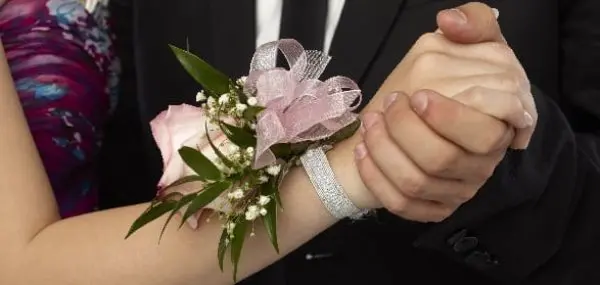For many high schools across the United States, a big highlight of the fall season is the homecoming dance. Some schools hold formal or semi-formal homecoming dances—teens may even extend invitations similar to how they would with a prom-posal, and tickets can be expensive. Other schools have no dance at all, or a regular school dance in their school gym or cafeteria. Are there before- and after-parties? Are there alternatives if kids don’t want to attend? Parents on our Facebook page had a lot of questions about homecoming. Here’s our roundup of homecoming tips and answers to parents’ most common questions, plus advice we’d like to share.
What do most teenagers do during homecoming?
Specific homecoming traditions depend on where you live, but in general, there’s the football game during the day and then a school dance in the evening. Teenagers often also go out to dinner—at a restaurant or at a friend’s house—before the homecoming dance. Many teenagers go to after parties.
How do we keep tabs on our teens?
Keeping tabs on our teens starts with having conversations. Ask them how they’ll be celebrating homecoming and which events they’ll attend. Ask if they’re going somewhere else before or after a school sanctioned event. Ask how they’re getting there and back home. Who’s going with them?
Will adults be present? Ask your teenager to provide details on where they will be, and when, and to call or text if those plans change. Also talk about whether or not your teenager’s curfew should be extended for the evening.
What about drinking?
Like prom, the homecoming dance and the football game are events that many teenagers believe should include alcohol. It’s helpful for parents to be realistic about the fact that older teenagers especially may be in situations during homecoming where alcohol is present. While parents should stress that they’d rather their teenager didn’t drink, they should also have a realistic (and helpful) conversation about alcohol. Set up some non-negotiable rules for homecoming safety, including:
- No drinking and driving. Provide your teenager with options if they’re not able to drive (or their ride has been drinking). This can include a no-questions-asked ride home or encouraging your teenager to use Uber or Lyft.
- No binge drinking. Binge drinking (drinking a lot in a short period of time) is dangerous. Not only does it lead to terrible decision-making (like drinking and driving), it can also lead to death (from alcohol poisoning). Talk to teenagers about moderation.
- Different rules for younger teenagers. The younger the teenager, the more proactive parents should be about keeping a teenager away from alcohol (setting a curfew, asking whether an adult will be present at dinner or at an after party, calling to make sure, etc.). That’s because the research is clear that the younger the teenager, the more harmful alcohol is to the developing brain.
- Call or text you if there’s trouble or if they feel unsafe. Your child needs to know they can trust and rely on your help when they need it. Agree on a codeword or emoji that signals they need help right away. Don’t ask for details or an explanation. Just go collect them. You can ask questions once you and your child have calmed down again.
What if my teenager doesn’t have a date or doesn’t want to go to the homecoming dance?
Dates are optional. Plenty of teenagers go to the homecoming dance stag, or with one or more friends. If your teenager feels badly about not having a date for homecoming, don’t dwell on it; suggest alternative ways that your teen can enjoy the evening (like hanging out at the dance or somewhere else with friends). Some teenagers would rather not go to homecoming and that’s okay too (of course). Respect their choice to stay home.
Is homecoming expensive?
How much you’ll pay to attend homecoming events depends on your location. You’ll want to consider tickets to attend, clothing, dinner, transportation, and after-party plans. Who pays for what depends on your family dynamic and financial situation. Just know that if your teenager is attending the homecoming dance, their attire (the suit, the dress) doesn’t have to bust your budget. Look for sales at the mall and coupon savings. Thrift shops often have a great selections of gently used prom and homecoming attire. Rentals are an option, too. Work with your teen to budget in advance of making your purchases, so they know what to expect and can plan accordingly.
Should we veto their fashion choices?
Many parents don’t like what their teens choose to wear to the homecoming dance. They don’t like the color or the style of the clothing. They believe clothing should be gendered. Or, maybe the clothing is so revealing that parents are uncomfortable seeing it on their kid. If you have firm ideas about appropriate clothing, you may want to consider whether your opinions are worth expressing. Do your opinions empower your teen or are they meant to cut down your teen? Take a moment for self-reflection. Ask yourself what the origins of your opinions and discomfort are. The time, place, and prejudices of our upbringing shape us. Our world back when we were growing up looks a lot different than our teenagers’ world now. If your teen is determined to wear something you find cringeworthy and you just can’t let them go, try to negotiate a compromise that respects both parties and leaves room for your teen to express themself though fashion.
Should we call the parents of the party host?
It depends. If your teenager is going to a home of a family you know well and trust, then no call is necessary. But if this is a new friend—or plans sound vague—trust your instinct and intuition. Don’t hesitate to pick up the phone and call if you’re worried about your child’s safety. Also, consider your child’s age. Older teenagers headed off to college next year should be given opportunities to make their own decisions. Younger teenagers (especially if you’re concerned about alcohol consumption) require more oversight. Read more about when to call other parents here: Teen Parties: Should I Call the Parents?
What about sleepovers?
Sleepovers can be a way for teenagers who want to drink to evade parental detection. As in, you won’t know if your teenager has been drinking because you won’t see them until sometime the next day. Like parties, how much you want to probe into the details of a sleepover depends on the situation (and your teenager). Here’s more advice: Teen Sleepovers—8 Rules For Parents Who Allow Them.




